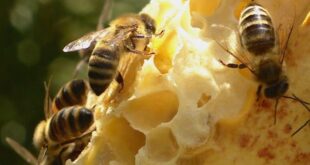Asian tiger mosquito is spreading across the U.S., Europe and can carry Zika, West Nile viruses

Some biologists are predicting climate change could mean the arrival of new insects on Atlantic Canada's shores.
Laura Ferguson, an assistant professor in the biology department at Acadia University, is among those studying bugs in Nova Scotia.
Some of her work focuses on the Asian tiger mosquito, which is not known to be in Nova Scotia. The small black-and-white mosquito is spreading across the U.S. and Europe and can carry Zika and West Nile viruses.
Ferguson said researchers are tracking the range of expansion for the species that used to be found in warm regions.
"Now that we're warming with climate change, they're moving into these areas [where we] haven't had them before," Ferguson said.
Ferguson and a team of Acadia students are conducting studies examining which mosquito species are in Nova Scotia and how their bodies function, especially related to temperature.
38 known species in N.S.
There are 38 species of mosquito that have been identified in the province, and more than 40 in the Maritimes.
The team in Wolfville, N.S., have many questions related to the Asian tiger mosquito, including how the species might spread in the province and whether it could survive the winter.
Ferguson said part of that research involves examining the Asian tiger mosquito under a microscope.
"Essentially, what we're working on right now is trying to figure out how we could work with it here and contain it here.
"The issue … is that when you work with a species that's invasive that isn't here yet, but could end up here, you have to be really, really careful working with it so that it doesn't get out."
Ferguson said rather than bringing the species to Nova Scotia, her project may see researchers collaborating with labs where the Asian tiger mosquito has already been identified.
Helping her along the way is an award from the Natural Sciences and Engineering Research Council that includes a $190,000 grant.
It's difficult to predict how a changing climate will impact mosquitoes or other species, according to Dalhousie University's Paul Manning.
An assistant professor who teaches entomology, Manning said it's important researchers continue to watch bug populations for any possible changes.
"Some insects are really well equipped to withstand those fluctuations and some are much less able to," he said.
"We definitely need more people out there counting insects, looking at insects, reporting insects and trying to figure out what does alter their populations on a year-over-year basis."
Ferguson said it's not only important to understand changes to mosquito populations, but also the risks they pose to humans and animals.
CBC Nova Scotia
Add some “good” to your morning and evening.
Get the latest top stories from across Nova Scotia in your inbox every weekday.
The next issue of CBC Nova Scotia newsletter will soon be in your inbox.
Discover all CBC newsletters in the Subscription Centre.
*****
Credit belongs to : www.cbc.ca
 MaharlikaNews | Canada Leading Online Filipino Newspaper Portal The No. 1 most engaged information website for Filipino – Canadian in Canada. MaharlikaNews.com received almost a quarter a million visitors in 2020.
MaharlikaNews | Canada Leading Online Filipino Newspaper Portal The No. 1 most engaged information website for Filipino – Canadian in Canada. MaharlikaNews.com received almost a quarter a million visitors in 2020.







